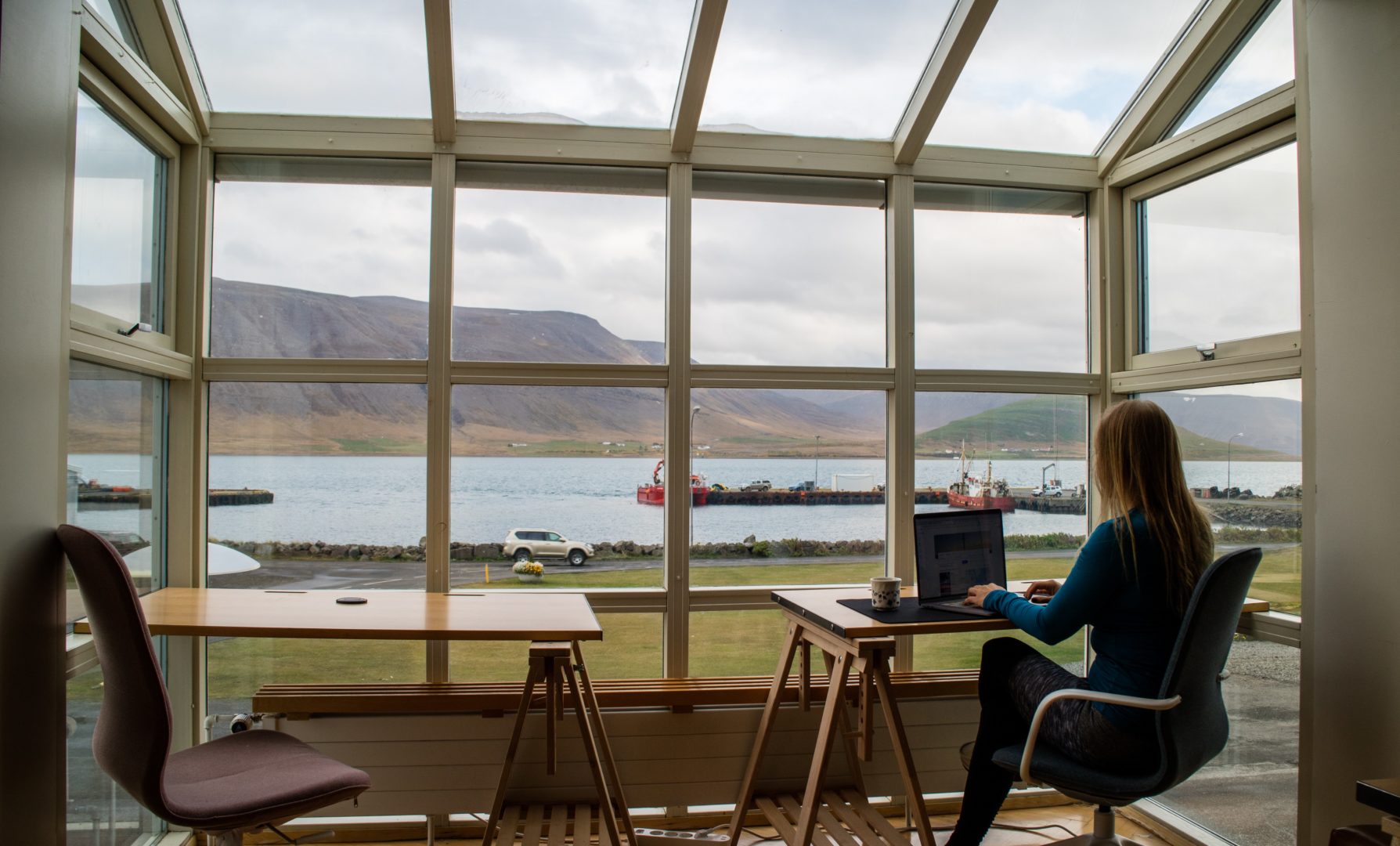
It’s easy to see that the world of work as we know it is changing. Technological changes were already causing a shift towards remote working, but since COVID (where people were forced to work remotely), this move has accelerated. Now, 16% of global companies work on a fully remote basis.
So, how can you expect your staff to act in the future of remote work? We’ve put together a few predictions for how employees may behave and react in this new and dynamic workplace. Spoiler: we think they will be more productive and positive!
Here are some of our future remote work predictions for a post-COVID era.
The rise of digital nomads is definitely something to watch. And digital nomads aren’t all freelancers; in fact, in the US alone, there are around 10.9 million digital nomads, and some of them work for one company - they just aren’t committed to staying in a particular location.
If you have employees who work on a fully-remote basis, they may wish to work in different destinations. Perhaps the company is based in rainy London and they’d like to spend a few months in sunny Italy. Or, if you have a New York office, staff members might wish to temporarily move to Mexico for cheaper living.

Although you could technically prohibit your staff members from working from another country (particularly if it’s in a different time zone which will affect meetings or if you may need staff members to work in person at late notice), it’s a good idea to allow it at whatever level your company can. This will help with staff satisfaction and ultimately retention.
Generally, staff members who work on this basis don’t need any extra support for moving - they organise whether they need a visa, and it’s their responsibility to find a suitable place for work with fast WiFi.
As the world develops, increasing global destinations have high-speed WiFi, and locations around the world are adjusting more to accommodating digital nomads. It’s even possible to apply for a digital nomad visa in countless countries around the world!
Because of this great shift, the “office” industry is set to change dramatically. City centre locations like London’s Canary Wharf were very hard-hit by the pandemic, with cafes that mainly catered for office employees experiencing a huge drop in custom.
But economies are constantly shifting, and the downfall of one often means a rise in another. While the office industry has struggled, the remote work industry has boomed. It involves businesses like the following:
Co-working spaces are office-style buildings that generally feel more modern and stylish (kind of like how any millennial may expect an office to be!). People pay to use these spaces on a daily, weekly or monthly basis and use them to work, coming or going as they please. These spaces offer a good mix between an office atmosphere and the flexibility of working remotely.
Working in cafes or coffee shops is becoming increasingly popular; it’s often productive to have a change of scene in the working day. However, it’s not city-centre coffee shops that are seeing a surge in popularity.
Instead, it’s the small cafes in residential areas, or perhaps a high-street Starbucks in suburban locations. In a post-covid world, the popularity of cafes is expected to soar.
Another industry that’s set to rise is collaboration technology. This type of digital transformation enables staff members to connect and share ideas even when they’re working remotely. An example of such is an interactive display, like those we sell here at Avocor.
These are giant tablet-like devices that attach to the wall of your office’s primary workspace. From it, you can use the internet and other applications and host meetings where you can see your staff members in life-size.
Collaboration technology is what will make the remote future workplace possible, so as increasing numbers of companies move online, it’s projected that the demand for these technologies will increase.
The global landscape of work is also set to change. Pre-covid, places like Bali and Chiang Mai were already becoming popular with digital nomads.
But since the pandemic, increasing amounts of these ‘digital nomad hotspots’ have popped up all over the world, notably quite a few in Mexico (Tulum and Playa del Carmen are among the most popular digital nomad destinations in the world now).
This will change the landscape of these destinations dramatically. They’re investing more money in co-working spaces, adapting cafes so they’re friendly for remote workers (i.e. more electricity points and good WiFi!) and building digital-nomad friendly accommodation, with strong WiFi (it’s more or less the only remote work essential!) and other features like gyms or pools.
In the next few years, we can expect hundreds of destinations around the world to be incredibly digital-nomad friendly. Hopefully, this state-of-the-art digital nomad infrastructure means you’ll have less anxiety about some of your staff members operating from abroad!
Over the last 100 years, there’s been a big migration to cities around the world. Suburbs have expanded due to the huge amount of work opportunities available in the cities. This has caused the population of people in rural areas to decline, and towns and villages around big cities have been absorbed by them.

However, the reverse is predicted to happen in the next few years, thanks to the number of people who will move to work online. Countryside and coastal destinations are predicted to become much more popular, as people find more of a work/ life balance and enjoy the benefits of nature rather than the city.
One of the main worries that bosses have about virtual leadership is that they’ll lose control of their employees. It’s an understandable worry; if employees are offered complete flexibility, what’s there to say that they won’t be online at strange hours and be unable to take conference calls?
It’s important to clarify that remote workplaces can still be workplaces with rules. It’s fair to have compulsory meetings at certain times (which can be based on the best working hours for your company’s time zones). During meetings, you could also have a requirement that your staff should be in a quiet surrounding, such as their home, rather than a busy cafe.
Most organisations will have more flexible rules outside of meetings, allowing people to work wherever suits them best as long as they get the work done, but if at any point it feels like any staff member isn’t working as productively as they could be, you can confront them and deal with the situation as you see fit (perhaps setting out a work from home plan for them or asking them to come into the office more often).
Unless you prohibit working from another country (which we don’t recommend!), it’s likely that you’ll eventually work across time zones. Of course, if you’re an international brand, you’ll already be doing this!
Working across time zones often means having fewer meetings, or scheduling them for when the majority of people are online. For example, if you are a Mumbai, India-based company and have some employees in Sydney, Australia, you might need to have your meetings in the morning India time to accommodate those in Sydney.
Of course, if individual employees move to other countries, it’s up to them to ensure that they stick to meeting times and set working hours. For example, if someone works for a Miami-based company and decides to relocate to Lisbon for a few months, they will be four hours ahead of Miami.

If an employee needs to work from 9-5 Miami time, they’ll have to commit to working from 1-9 Lisbon time. Many employees are happy to do this if it means that they can enjoy the flexibility of a digital nomad lifestyle!
Remote work training will be an essential part of the future workplace. Whether you do it yourself or hire an external company is up to you!
Virtual team training will have modules consisting of the following:
This is also a great opportunity to establish some ground rules for working from home, to ensure that you all have a fantastic policy in place. It’s also a good time to make sure that your colleagues have voiced any opinions or concerns that they may have!
The future of remote work can seem daunting, particularly if you’re a typically traditional company. However, it’s the way the world is heading, so it’s important to move with the times and start to offer remote work opportunities.
Hopefully, these remote work predictions have shown you what your staff members may be up to while they’re working from home, and how you can still run an effective remote workplace!
Keep up to date with all the latest from Avocor and partners and get information on upcoming events and exciting product news.
Speak to one of our product specialists and find the perfect solution for you.